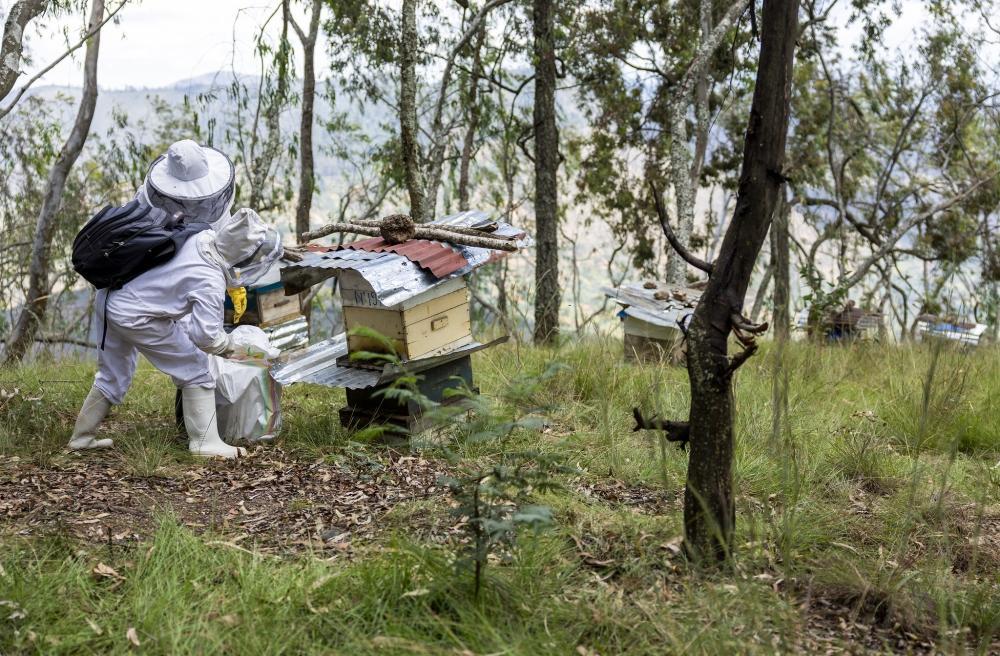Africa-Press – Rwanda. The country is promoting late-afternoon pesticide application and modern beekeeping practices to curb pesticide-related bee deaths, according to officials at Rwanda Agriculture and Animal Resources Development Board (RAB).
According to Fabrice Ndayisenga, RAB’s Head of Animal Resources Research and Technology Transfer, a rise in maize cultivation has led to increased pesticide use, which is harming bee populations.
He said: “We are working with farmers to encourage evening pesticide application, after bees have finished foraging. The challenge now is enforcement; we’re exploring ways to strengthen it.”
Ndayisenga was speaking at a high-level national stakeholder workshop on integrating agroecology and animal welfare into Rwanda’s third Nationally Determined Contribution (NDC 3.0), organised by Rwanda Climate Change and Development Network (RCCDN) in partnership with World Animal Protection and the Alliance for Food Sovereignty in Africa (AFSA), on June 10, in Kigali.
Rwandan farmers are being encouraged to shift their mindset, not just to complete farm tasks quickly, but to recognise the vital role bees play in pollination, which benefits not only beekeepers but crop farmers as well.
“Maize farming won’t stop, but awareness is key. We’re urging farmers to apply pesticides from 4 p.m. onwards. Pests like armyworms need to be managed, but we must ensure pesticides are used properly,” Ndayisenga added.
Another strategy involves promoting modern beekeeping practices. “We are encouraging beekeepers to utilise state forests, where flowers can be cultivated nearby. This reduces the bees’ risk of exposure to harmful chemicals,” he said, adding that the country is increasingly using pesticides that are less toxic to bees.
“Highly harmful pesticides are not being imported,” he added. “Traditional beekeeping is still common, but modern systems allow for better control. Planting bee-friendly flowers helps ensure enough forage for the colonies.”
Avoiding pesticide use during daytime when bees are foraging, is not just about protecting bees, he explained. It is also sound agricultural practice, as bees help in pollination.
Jean Damascene Ntaganda, the President of the Federation of Beekeepers’ Cooperatives in Rwanda (FERWACAPI), said pesticides remain one of the key threats to beekeeping, but transitioning from traditional to modern methods could help to mitigate the damage.
“Pesticides, chemical fertilisers, and tree pests are all affecting bees. Sometimes bees forage on crops treated with pesticides, and the contaminated nectar or pollen can be brought back to the hive, harming other bees,” Ntaganda explained.
“However, bees kept in or near forests are at lower risk; they mostly forage on native trees, which are safer. We need agricultural output, but bees are vital to it. Farmers should ideally apply pesticides in the evening or at night.”
Faustin Vuningoma, the Coordinator of RCCDN, stressed the urgency of action.
Vuningoma said: “As we strive to boost agricultural production, the pesticides being used are also threatening bee populations. This could undermine not only honey production but crop yields too. We have raised this issue for some time, but it’s now critical to implement protective measures, as bee populations are declining significantly.”
For More News And Analysis About Rwanda Follow Africa-Press






